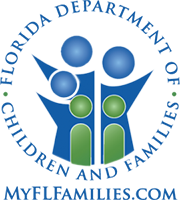Find the Best Dual Diagnosis Treatment in Fort Lauderdale
Finding a quality dual diagnosis treatment center can be tricky. How can you tell if the facility you choose is good? Before deciding on treatment, here are some things to keep in mind:
- How much will you be expected to pay out of pocket? Is it “in network” for your insurance?
- Is it accredited by any organization?
- Read reviews from a variety of sources
- Do they offer different forms of therapy?
- Do they provide multiple levels of care?
What is a Dual Diagnosis?
The term dual diagnosis refers to someone who has both a mental health condition and substance use disorder (SUD). An example would be someone who is a heroin addict and has PTSD. The National Survey on Drug Use and Health recently found that 45%, or roughly 17.5 million Americans have a dual diagnosis. Addiction research has long since shown that people with mental health conditions are two times more likely to struggle with substance use disorder than those without them. There are a few theories on why this occurs:
- Substance use can contribute to the development of mental illnesses like Depression and Anxiety.
- Mental health conditions can drive someone to substance use in an attempt to cope with painful emotions.
- Risk factors for substance abuse, such as genetics and environment, can also play a large role in mental health conditions developing
The most common mental health conditions that occur in dual diagnoses are PTSD, Schizophrenia, personality disorders, Anxiety, and Depression.
How is Dual Diagnosis Treatment Different?
The World Health Organization recommends that both the mental health component and substance abuse should be treated concurrently. Since both conditions are risk factors for the other, treating both will provide the best results. To accomplish this, here are some recommendations for what your care should include:
- Family should be involved in the planning of treatment as well as participate in family therapy with the addict. Relationships often suffer due to the addict’s behaviors and it may take time and difficult conversations to restore damaged trust and hurt feelings.
- The client should be actively involved in treatment planning and should be encouraged to make decisions about their care.
- Medications for mental health conditions or to assist in substance abuse treatment can be beneficial in helping decrease symptoms associated with both.
- There should be clear collaboration between mental health and substance abuse providers to ensure the person, as a whole, is receiving the treatment they need.
Without treating both simultaneously, there is greater risk for relapse or unsuccessful completion of treatment.
The Importance of Treating the Underlying Causes of Addiction
Learning you have a dual diagnosis can be scary and isolating. Many people will be in denial and may be hesitant to treatment. Both addiction and mental illness change the way neurotransmitters in our brain respond to signals they receive. Until these issues are addressed, the brain will still be hardwired to crave drugs or alcohol. Dual diagnosis treatment will include the use of multiple forms of therapy, each intended to help you process trauma and learn effective ways to cope with distress. Learning these coping skills is essential to your recovery because you are removing the unhealthy coping mechanisms you once used. Therapies may include ones specifically tailored to treat trauma such as EMDR or RRT, as well as individual, group, family, and art therapies.
The Source Treatment Center in Fort Lauderdale is home to premier care and luxurious amenities. Their facility has been nationally recognized for treating the mental health conditions and substance abuse together due to the compassionate and supportive care they provide. For more information on how The Source can help your dual diagnosis, please call (800) 204-0418 or visit us online at www.thesourcetreatmentcenter.com.


 The Source quite frankly saved my life and got me back on track, never giving giving up on me. When you are thinking about and looking through all of the different places to go for treatment this is the one that should stand out from the rest.
The Source quite frankly saved my life and got me back on track, never giving giving up on me. When you are thinking about and looking through all of the different places to go for treatment this is the one that should stand out from the rest.




























